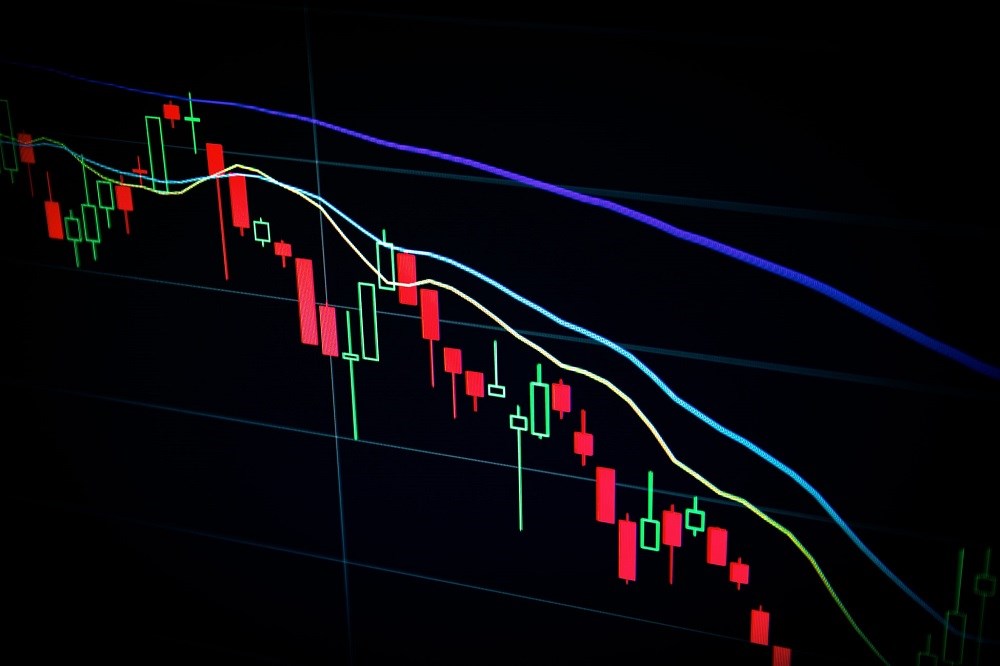
Upbeat earnings and healthy profits from banks have pushed Canada's benchmark index near record highs. Particularly during a pandemic, the performance has become a political target, forming the basis for Canadian Prime Minister Justin Trudeau to promise to raise corporate tax rates on big banks to fund and fuel the COVID-19 recovery if he got re-elected in the upcoming polls.
Canadian financial institutions form one of the strongest pillars of the nation’s economy. With an oligopoly and control 90% of banking deposits, Canadian banks remain resilient during spells of economic malaise. It’s hardly surprising that the S&P/TSX Canadian Financials Index clocked more than a 20% return for the year to date, topping the 17% gains for the broader S&P/TSX Composite Index for the same period, as of Aug 27, 2021.
Canadian investors looking to bolster their portfolios may look at some homegrown prospects in local lenders. Cushioned by a favourable regulatory environment, they also boast a burgeoning U.S. market share and strong balance sheets that keep them buoyed during economic upheavals.
|
Bank of Montreal |
||
|
Ticker |
||
|
Current yield: |
3.29% |
|
|
Forward P/E: |
10.24 |
|
|
Price |
$126.94 |
|
|
Fair value: |
$130 |
|
|
Value |
Fairly valued |
|
|
Moat |
Narrow |
|
|
Moat Trend |
Stable |
|
|
Star rating |
*** |
|
|
Data as of Aug 27, 2021 |
||
Bank of Montreal (BMO) is the fourth-largest Canadian bank and one of six that collectively hold almost 90% of the nation's banking deposits. The lender provides diversified financial services in Canada and the U.S. through four business segments: Canadian personal and commercial banking, U.S. P&C banking, wealth management, and capital markets. Canada accounts for roughly 60% of its revenue while 30% comes from the U.S.
“With its more commercially focused book, it boasts good share in its domestic commercial lending market, particularly for loans under US$25 million,” says a Morningstar equity report, pointing out BMO also has “the lowest relative exposure to residential mortgage loans among its peers,” which limits its loan risk.
BMO has been bulking up its U.S. operations and commercial lending strength. “We like BMO’s presence in the U.S., as it has built up respectable deposit market share numbers, generated material growth, and avoided some of the mistakes other Canadian banks have made in attempts to expand south,” notes Morningstar equity analyst Eric Compton, who recently raised the stock’s fair value from $115 to $130.
The bank reported stellar third-quarter earnings, including sharply higher profits and far less money allocated for bad loans, a practice called provisioning. “This aligns with our view that the Canadian banks will be fine from a credit perspective and that better results should be the norm going forward,” says Compton.
|
Royal Bank of Canada |
||
|
Ticker |
||
|
Current yield: |
3.27% |
|
|
Forward P/E: |
12.02 |
|
|
Price |
$132.28 |
|
|
Fair value: |
$132 |
|
|
Value |
Fairly valued |
|
|
Moat |
Wide |
|
|
Moat Trend |
Stable |
|
|
Star rating |
*** |
|
|
Data as of Aug 27, 2021 |
||
One of the two largest Canadian lenders by assets, Royal Bank (RY) offers diversified financial services including personal and commercial banking, wealth management services, insurance, corporate banking, and capital markets services. The bank is concentrated in Canada, with additional operations in the U.S. and other countries. The bank derives two-thirds of its revenue from Canada, with the rest spread primarily across the U.S. and the Caribbean.
“It has done an admirable job of expanding its nonbank lines of business, running efficient banking operations, and generating some of the best returns for shareholders in the industry,” notes a Morningstar equity report, and forecasts RBC “should remain one of the dominant Canadian banks for years to come, even as a more difficult macro backdrop pressures earnings growth in the medium term.”
A steady player in its retail and commercial Canadian banking operations, Royal Bank also remains a major player in global capital markets. “We expect this segment to continue to be a strong contributor to net income, and if anything, capital markets have been countercyclical for the bank during the pandemic as earnings have soared for the unit,” stresses Compton, who recently upped the stock’s fair value from $127 to $132, incorporating strong third-quarter earnings.
Emerging from the pandemic-driven downdraft in 2020, the bank has turned 2021 into a year of recovery in profitability and lower-than-expected credit costs.
|
Canadian Imperial Bank of Commerce |
||
|
Ticker |
||
|
Current yield: |
3.97% |
|
|
Forward P/E: |
10.52 |
|
|
Price |
$146.47 |
|
|
Fair value: |
$153 |
|
|
Value |
Fairly valued |
|
|
Moat |
Narrow |
|
|
Moat Trend |
Stable |
|
|
Star rating |
*** |
|
|
Data as of Aug 27, 2021 |
||
Canada's fifth-largest bank by assets, Canadian Imperial Bank of Commerce (CM) boats 11 million personal banking and business customers, primarily in Canada, who use the bank’s retail and business banking, wealth management, and capital markets services.
“CIBC is more Canadian-focused than some of its more international peers, although this is changing after the acquisition of [Chicago-based] PrivateBancorp,” notes a Morningstar equity report, pointing out the “bank plans to eventually have up to 25% of revenue coming from the U.S.,” up from the current 20% contribution.
Since 2011, CIBC had made significant progress expanding share in multiple categories and increased product numbers per customer. “This improvement has admittedly slowed down recently, although the bank appears to be taking incremental share again in 2021,” notes Compton, who recently raised the stock’s fair value from $133 to $153, incorporating solid third-quarter earnings and a robust year-over-year EPS growth.
The return of fee growth and much lower provisions are projected to drive solid earnings growth for the rest of the year, but “the lack of a boost from lower provisioning should make for tougher comparisons for the Canadian banks in 2022,” Compton says.
Navigating through multibillion-dollar write-downs in the aftermath of the global financial crisis, CIBC has managed to boost client relationships. “The bank had hit its stride since 2011, improving consumer satisfaction ratings, reoptimizing branches, improving internal processes, and expanding wealth operations,” asserts Compton.
|
Bank of Nova Scotia |
||
|
Ticker |
||
|
Current yield: |
4.46% |
|
|
Forward P/E: |
10.10 |
|
|
Price |
$79.39 |
|
|
Fair value: |
$83 |
|
|
Value |
Fairly valued |
|
|
Moat |
Narrow |
|
|
Moat Trend |
Stable |
|
|
Star rating |
*** |
|
|
Data as of Aug 27, 2021 |
||
The third-largest Canadian bank by assets, Bank of Nova Scotia (BNS) offers a range of advice, products, and services through five business segments: Canadian banking, international banking, global wealth management, global banking and markets and others.
The bank has the strongest international presence among all Canadian banks, with operations concentrated in Central and South America. “It is known as Canada’s most international bank as it derives half of its revenue from Canada, over 40% from international operations (primarily Latin America, namely Mexico, Peru, and Chile), and a single-digit percentage from the U.S.,” says a Morningstar equity report.
The Halifax-based lender’s domestic operations are focused predominantly on mortgages and auto lending, with a leading market share in the latter.
The bank has been augmenting its domestic and international wealth operations by way of acquisitions. “The international exposure gives the bank the potential for higher growth and return opportunities compared with peers,” contends Compton, with a caveat that “it also exposes the bank to more risks,” particularly that of a resurgence in emerging markets of political turmoil, higher credit losses, and inflation.
As well, the unique risks surrounding Latin America's pandemic rebound can’t be ignored, says Compton, who recently raised the stock’s fair value from $77 to $83, after incorporating the latest quarterly results.
He specifically praised the bank’s digital efforts, an area where its spending has outstripped that of its peers. “This leads us to believe that returns on tangible equity near 15% are sustainable over the longer term for the bank,” Compton notes.






















